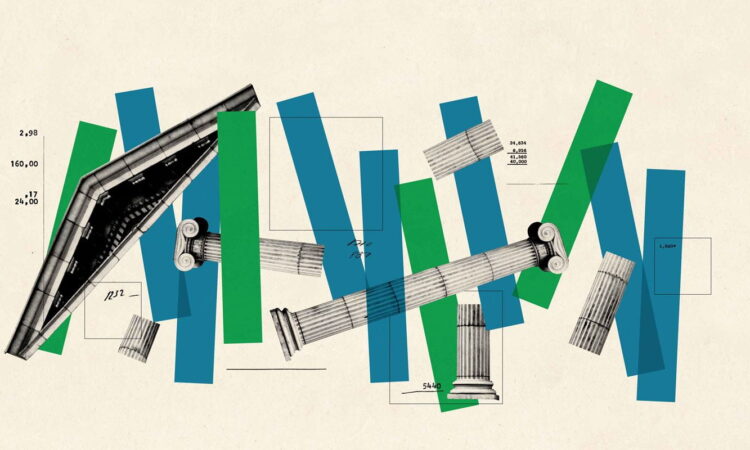
“These numbers suggest that banks actively sought to insulate their balance sheets and statements of income from declining market prices,” Granja writes. “. . . Were weak banks attempting to purposefully ‘hide’ potential future losses that might expose their frail capital and liquidity positions?”
The Fed’s cycle of monetary tightening led to a 10–30 percent drop in the price of bonds and similar securities, he notes. That spelled losses for banks holding those assets.
Granja estimates that US banks were able to avoid recognizing $175 billion in losses on securities simply by slapping the HTM accounting label on them, according to the research. In most cases, he says, this reclassification camouflaged a modest amount of damage—but at a few banks, including some prominent ones, the losses, if realized, would have eroded more than half of their capital.
The study finds evidence that these banks may not have really had the intent and ability to hold on to these securities, as required under US accounting rules. His analysis indicates that less-stable banks—those with smaller capital bases, more securities that were exposed to interest-rate risk, and a higher share of customers whose deposits were above the $250,000 Federal Deposit Insurance Corporation guarantee—were more likely to reclassify securities during 2021 and 2022.
This suggests that weaker banks were attempting to hide potential future losses that would expose their shaky financial positions, Granja says.
He calls for stricter external scrutiny from auditors and regulators to strengthen financial stability. “Bank supervisors may have forgotten how dangerous these interest-rate risks might be in the financial system because rates have been so low for such a long time,” he says.
The Fed’s recent stress tests on banks did not include scenarios with higher interest rates, he notes, arguing that if losses on securities portfolios had been obvious earlier, supervisors could have forced banks such as SVB to shore up their finances before it was too late.
“With stricter monitoring, it’s possible that future losses will come to light sooner, and corrective action can be taken faster to salvage a bank that is in danger,” Granja says.





